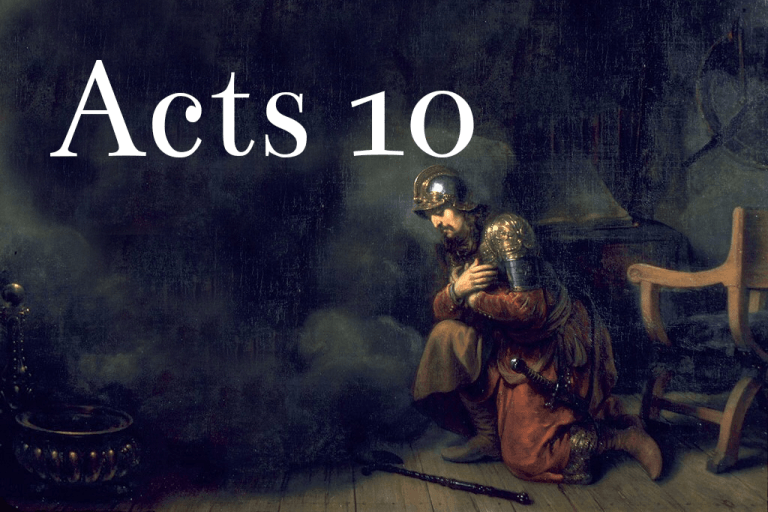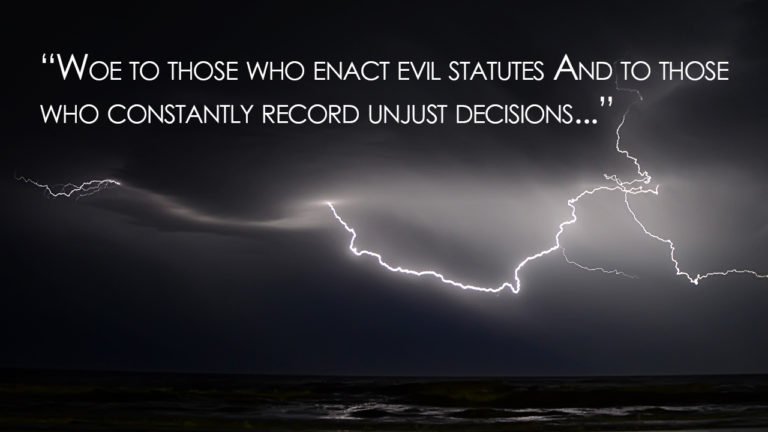
Judges 3 describes how the Lord left certain nations in Canaan to test Israel. These foreign nations would help determine Israel's faithfulness to His commands. Despite this, the Israelites intermarried with the surrounding nations and adopted their ...

Ezekiel 10 - Think for a moment about the devastation caused by sin. This was not just a "mistake" or "moral failure." No matter how much we dress up the sins of the people, the severity of ...

Acts 23 - "Behold, I send you out as sheep in the midst of wolves; so be shrewd as serpents and innocent as doves. 17 "But beware of men, for they will hand you over to the ...

Acts 18 - Corinth had a bad reputation for being a city chock full of immorality. It was known as the hub for Aphrodite (fertility goddess) worship. It was also known for having a major temple dedicated ...

Acts 10 - Many people like to ask the question, can you be saved if you are a genuine seeker and have responded to God but have not yet heard the Gospel? Cornelius was described as a ...

Jeremiah 7 - A lot of people act like the God of the Old Testament and the God of the New Testament is simply not the same being. Although they may call Him God, they live as ...

Isaiah 10 - 'Woe" is a dangerous word in Scripture. Chapter 10 kicks off with God using this word as a warning of the severe consequences to come. It is the deprivation of the poor and ...

2 John 1 - We read in 2 John a more traditional opening as it's a letter written to a particular individual. However, we can assume this was written to a larger group of people as it ...

2 Samuel 18 - This is a difficult chapter to absorb. On one hand, justice was served and the rightful king of Israel was restored. On the other hand, a loving father grieves the loss of his ...

2 Samuel 16 - The reason why we read several chapters back about the grace David extended to Saul's family is because here in 2 Samuel 16, we read of how Saul's family wants to kick David ...

1 Samuel 2 - The book of 1 Samuel is interesting because it transitions from a time of judges into a political and religious monarchy. We get a picture of the time period ...

Romans 3 - When we study Scripture, it is important we don't sweep through it with a predetermined mindset. There are always deeper truths to be found but sometimes we can miss it. This is especially true ...

1 Kings 5 - There were two key ingredients Solomon needed in order to build the temple. 1) Peace. 2) Wood. This was an amazing time for Israel as they had no threats from their enemies. "You ...

Esther 9 - Historians have long criticized Esther for her decision to eradicate all those who stood against the Jews. Herodotus, a Greek historian, wrote that Esther was a cold and vindictive woman. To outsiders, justice can ...

Nehemiah 5 - In Nehemiah 4, we looked at how the enemy engages us when we step out in faith to do the Lord's work. Satan and the world work externally to derail our progress, however, the ...

Zechariah 2 - There is so much we could unpack in this short chapter of only 13 verses. It is rich with symbolism and prophecy. But I want to draw your focus to one section that stuck ...

Micah 6 - Micah uses a sarcastic exaggeration to illustrate the hardness of the people's hearts. What shall I bring to the LORD, the God of heaven, when I come to worship him? Shall I bring the ...

Psalm 133 - Through Jesus, the Holy Spirit has been poured out over us. Like a priest who would be anointed by a fine oil, we as believers have been abundantly blessed by the Holy Spirit. This ...

Psalm 90 - So teach us to number our days, That we may present to You a heart of wisdom. Psalms 90:12 NASB We've all heard stories of those who receive a heart-breaking terminal diagnosis, and are ...

Psalm 46 - The statements made in Psalm 46 are common knowledge to those who've walked with God. We sing them in our songs and read them all over Scripture. It's easy sometimes to gloss over these ...

Deuteronomy 20 - A lot of us have never thought about what it means to go to war vastly outnumbered. When the facts of the situation do not look to be in our favor, where do we ...

Deuteronomy 18 - "God said..." It's a phrase that has permeated our Christian culture. It's a statement that flies out of people's mouths easily and routinely. Reading it in Christian books and magazines and hearing it in ...

Ecclesiastes 4 - This chapter continues with the theme of finding meaning in a very broken world. It begins by analyzing how the strong take advantage of the weak. It's an issue and question that people still ...

Ezekiel 45 - Nelson's New Illustrated Commentary points out the emphasis of holiness in this chapter. There are specific details of what was expected by God in regards to being holy. Stop the use of violence and ...























